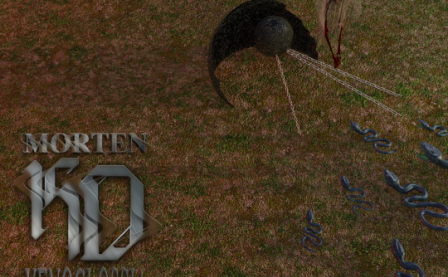Even while the distribution of music continues to evolve and our expectations concerning format are challenged and circumvented, the relatively recent return of the cassette tape continues to evade misconceptions surrounding intended quality along with perceived kinaesthetic connotations. This is made more vivid when the music itself takes on an authoritarian guise, which is established through overbearing vocal commands or a mutilation of contemporary perceptions on past genres and styles. When this happens, there is a stark juxtaposition of distant, current, and past technologies that cease to align, forcing the artist to disfigure their influences and straddle fictional boundaries between the visionary and the absurd.
On the back of a growing appreciation for music that stimulates audiences by way of an assumed commentary on futuristic landscapes comes an album that melds familiar EDM signifiers while altering the very patterns that lead to their classification. Xenoglossia is a non-conformist interplay of fragments bound by intrepid redesigns of melody and structure, interpreting the restrictions of rhythmic suspense in a sonic environment carved out of trauma, depletion, excess, and palpitation.
Enigmatic Norwegian producer Morten HD achieves this by distributing his work across non-linear platforms such as a SoundCloud and Vine, while releasing his first major full-length on cassette tape. The styles that are rearranged culminate in a transformative revision of grime, trance, and jungle, which are used to create a sound that’s at once disjointed and unfamiliar. It traces heady bass lines and poignant trance keys between the distinctive melodies and cycles that are set in place to guide them. The experience is often uncomfortable, though it begins to change through continued engagement and persistence; the authoritative vocals that dominate a number of tracks here give rise to a trepid, vulnerable, and therefore exciting atmosphere.
The album opens with a beat-less trance piece, a damaged spirograph that wavers in and out of associated formats. It’s as though there is a retained focus on the public arena that trance music often commands, while enforcing an isolationist feel that goes beyond mere beat deprivation. “49-989” is a warning as to how the rest of the album proceeds by adorning familiar tropes that have been dominant in the album’s stylistic influence. They are lifted out of past versions and placed into a skewed and often startling context. “Alto Carmel” even harks back to early-90s jungle, which was frequently distributed on cassette, and therefore permits a distribution comparison as well as an aesthetic one. The track’s vocal narration is muffled and deep, echoing the feedback-inflected MCs of those early tapes while complementing the imposing battle horn driving the piece.
Such flashbacks impact on feelings of both nostalgia and association, as the producer’s unsteady mixture swirls with innovative composition and even volume adjustment (the distant quake of “Urwelt,” for instance) that comprises the album from start to finish. Morten HD overhauls expectation through inserting choral effects, splitting melodies and revelling in imperfect cadence, which all manifest transformations while simultaneously granting the listener solace in familiar technical designs. The approach works on a psychological level, because it defies its audience while redefining the margins of ease. “Phosphene Graphics,” with its towering drones and giddy synths. reaches a climatic void that mirrors abrasive noise over grime, dancehall, or any other indicated inspiration.
Although the combined upshot of such an unsettling formula allows the producer to lure its audience in to what might have otherwise been just another grime record, Xenoglossia celebrates its own desire to emphasize power relations in the tenacity of affiliation. Through signifying the potential of familiarity by contorting the attributes that create its reference points, Morten HD is able to utterly govern the listeners’ environment. That the album’s unfathomable narrator lurks in the darkest corners of this production makes that experience all the more uncertain; it’s hypnotic, even in the insecurities through which it feeds.
More about: Morten HD


